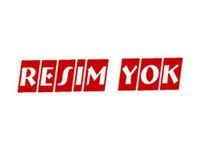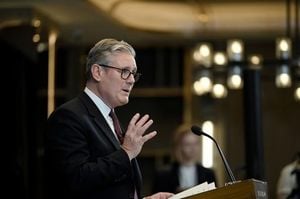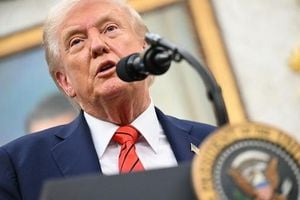France’s political landscape was rocked this week as Prime Minister Sébastien Lecornu, freshly appointed in September 2025, declared he would not invoke the controversial Article 49.3 of the French Constitution to push the government’s budget through parliament without a vote. Instead, Lecornu vowed to seek compromise with lawmakers across the spectrum—a move that signals a marked departure from the recent past and sets the stage for a tense, high-stakes political season in Paris.
For years, Article 49.3 has been a powerful, if divisive, tool for French governments. It allows the executive to pass legislation—most notably the national budget—without a vote from the National Assembly, unless lawmakers muster enough support for a no-confidence motion. Lecornu’s predecessor, François Bayrou, used it to pass this year’s budget, but the heavy-handed approach fueled unrest and contributed to his government’s downfall. As reported by the Associated Press, Lecornu, a 39-year-old centrist, was tapped by President Emmanuel Macron after those spending cuts and the use of 49.3 triggered political turmoil and left the government without a clear parliamentary majority.
Standing outside the prime minister’s office at Matignon on October 3, Lecornu told reporters, “Each lawmaker must be able to have power, must be able to have responsibility. I decided to renounce using the article 49.3 of the Constitution.” He continued, “The government will need to change its method, build compromises during the parliamentary debate.” According to France24, this decision was made ahead of a day of talks with opposition leaders and just weeks before a looming deadline to pass the 2026 budget.
Lecornu’s announcement comes at a time of deep fragmentation in France’s legislature. Early parliamentary elections in June 2024—called by Macron in hopes of restoring order—resulted instead in a divided assembly with no party holding a majority. This has left the government walking a political tightrope, as any major initiative risks being thwarted by opposition parties from both the left and right. As reported by Business Standard, Lecornu’s strategy is to entice lawmakers, especially from the moderate left and his conservative allies, The Republicans, into a “non-aggression pact” that would allow the government to function and avoid the threat of a no-confidence motion.
The prime minister was clear about his priorities: better pensions for women, fairer taxation, increased purchasing power, and addressing immigration issues. But none of these will be easy to deliver in a parliament that is, as Lecornu put it, “deeply fragmented.” He has yet to appoint his government ministers, a task he promised to complete “in the coming days,” with a general policy speech planned for next week at the National Assembly.
Lecornu’s decision to forgo Article 49.3 marks a significant shift in the governing style of President Macron’s administration. As reported by Anadolu Agency, the measure has been used frequently in recent years, often provoking fierce criticism from opposition parties who see it as undemocratic. According to a poll by the Elabe institute cited by Anadolu Agency, seven in ten French citizens oppose the use of Article 49.3, viewing it as a denial of democracy. Socialist leader Olivier Faure welcomed Lecornu’s “change of method” but called for a parliamentary vote on pension reform by December. “Renouncing 49.3 means accepting that Parliament alone will have the last word,” Faure said, though he warned that Lecornu’s budget plans remain “well below” expectations.
The response from other political factions was mixed. Marine Le Pen, leader of the far-right National Rally, described the move as “rather respectful of the Constitution and more respectful of democracy than what has been done in recent years.” Still, she cautioned that there was “no rupture with Macronism” and said her party would decide whether to support the budget or pursue a censure motion after Lecornu’s forthcoming policy speech.
Green Party leader Marine Tondelier was less charitable, accusing the prime minister of pursuing a “chloroform strategy” meant to “put us to sleep by doing nothing.” Communist Party chief Fabien Roussel said it would be “harsh” to censure a government that had abandoned Article 49.3 but warned, “there must be no tricks behind this.” Meanwhile, the radical left-wing La France Insoumise (LFI) vowed to keep pushing for a censure motion. “We will oppose this shipwreck and protect the country from the grave consequences of Macronist survival,” said LFI coordinator Manuel Bompard, as quoted by Anadolu Agency.
France’s economic context adds another layer of pressure to Lecornu’s gamble. The country boasts the European Union’s second largest economy, but its ballooning deficit and mounting debt have rattled investors and international observers alike. The government must have its 2026 budget adopted by December 31, 2025—a deadline that leaves little room for missteps or prolonged deadlock. According to Lecornu’s entourage, as reported by BFMTV, the coming weeks will be a test of whether compromise and negotiation can succeed where constitutional force did not.
Adding to the complexity, Lecornu has yet to fully form his government more than three weeks after his appointment. The delay underscores the challenge of assembling a cabinet that can command enough respect—and votes—in such a fragmented political environment. Sensitive reforms such as pensions, unemployment insurance, and measures to boost purchasing power all hang in the balance. As Lecornu himself admitted, “Now that the government is no longer in a position to interrupt the (parliamentary) debates, there is no reason why they should not begin next week.”
The stakes are high. Should Lecornu fail to secure enough support for the budget or other key reforms, the specter of a no-confidence vote—and with it, the risk of further instability—remains ever-present. Yet there is also hope among some lawmakers and segments of the public that this new approach could mark the beginning of a more open and democratic era in French governance. As Faure pointed out, the willingness to forgo 49.3 and negotiate could “change the method” of government and restore some measure of trust in the legislative process.
France now finds itself at a crossroads. The coming weeks will reveal whether Lecornu’s bold bet on compromise and parliamentary debate can deliver the stability and reforms the country desperately needs—or whether the forces of division and mistrust will prove too great to overcome.





